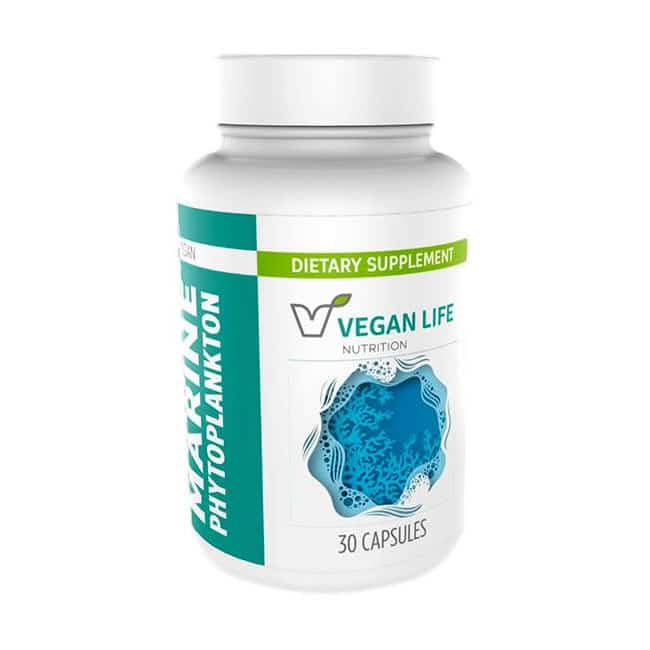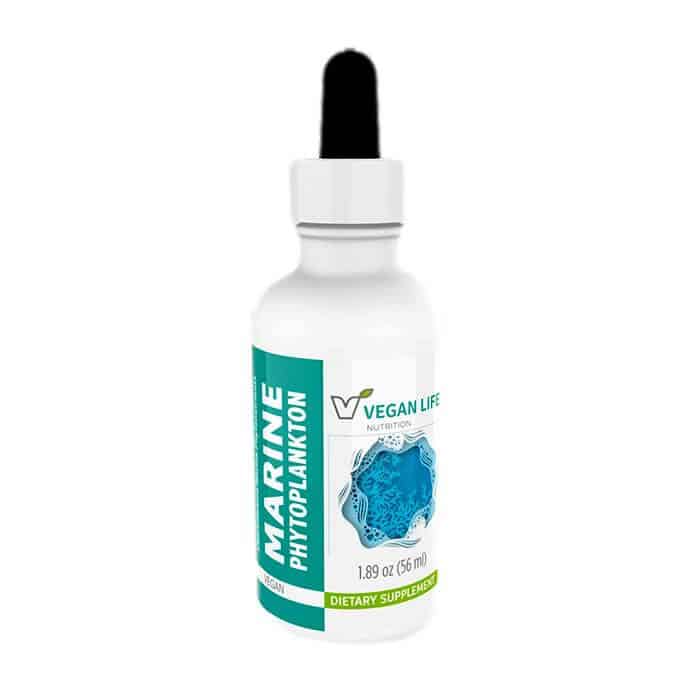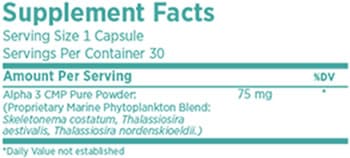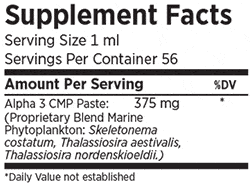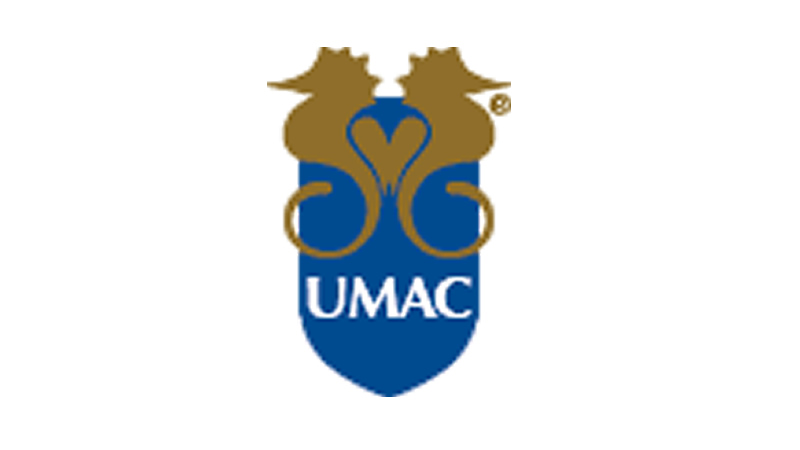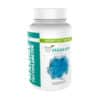No products in the cart.
UMAC-Core
Marine Phytoplankton
Nutrient Dense Food from The Ocean Price: $24.95
- Whole Food Nutrition - Excellent Source of Micro-Nutrients
- Supports Energy and Immune Strength
- Helps Stabilize Emotions
Description
Marine Phytoplankton
Phyto = Plants and Photosynthesis
Plankton = Floating in Water
The micronutrients and perfect pH balance found in Marine Phytoplankton help your cells function at optimal levels.
High density nutrients supports the structure and function of all organs in your body. A diet lacking in these micronutrients may result in dysfunction and increased disease.
| Key Benefits | |
| Helps cleanse and detoxify your blood | Helps skin disorders |
| Assists in digestion | Helps metabolizes fat |
| Bolsters your immune system | Encourages weight loss |
| Provides energy and vitality | Powerful antioxidant |
| Helps control blood pressure | May increase energy |
| May improve sleep quality | Eases muscle and joint discomforts |
| Helps reduce women’s health challenges | Helps improves emotional well being |
Marine Phytoplankton has been the original life-sustaining food source in the ocean for millions of years.
The key ingredient in Marine Phytoplankton is Alpha-3 CMP;, a complete, whole food containing everything your body requires to keep cells vital and strong. It provides many elements that many of us now lack, including carotenoids, chlorophyll, enzymes, and cellular material not found in this combination in other Green Superfoods.
This natural marine phytoplankton contains a complete set of marine trace elements in proportion to those found naturally in human plasma. The mineral elements and electrolytes in Phytoplankton are almost tailor-made for the human body.
This Green Superfood harnesses solar energy and delivers essential nutrients. Phytoplankton supplies our atmosphere with up to 90 percent of it’s oxygen. Most of the world’s oxygen comes from microscopic ocean plants, not forests, grasslands or lush tropical jungles.
Read what people are saying about it…
“I absolutely love CORE Phytoplankton. I’ve been on it for a month now and it’s done wonders on my IBS (irritable bowel syndrome), and on my anxiety.” ~ Carmen Vasquez-Galindo
“My family and I have better, more refreshing sleep and decreased problems with food allergies since starting to use CORE Phytoplankton. Best of all there are no side effects. I used the Marine Phytoplankton in capsule form, and found it promotes a wholesome sense of general well-being. I prefer to take it in the morning or mid-day, since it seems to give a gentle energy lift. It seems to be a very pure product. ” ~ Stephen Wild
“I love your Product! Thank you, thank you. I have been taking it for a few days, and feel different already. I have so much more energy, clarity in my head, it is just great! I’m working in a busy Cafeteria-Catering, and I need all the energy I can get!” ~ Terry, Los Angeles, California
UMAC Marine Phytoplankton Sciences
UMAC (Unique Marine Algae Concentrate) uses Alpha 3 CMP as the base of their products. Alpha 3 CMP is a unique nutrient-rich blend of marine phytoplankton harvested from the pristine temperate coastal waters of the northwest Pacific Ocean. It is classified as brown algae and is a blend of several species of marine phytoplankton. The turbulence created by the interaction of fresh water and ocean water draws from additional deep water nutrients to create an exceptional cauldron of life to support a diverse array of marine phytoplankton species.
The proprietary patent-pending process harvests natural seawater, capturing the marine phytoplankton in million-liter tanks. This is the only known product to take natural marine phytoplankton communities containing a complete suite of marine trace elements in proportion to those found naturally in human tissue. Throughout this unique growing and harvesting process, quality control and testing is employed to ensure the highest quality products, providing assurance that no pathogens, toxins, heavy metals or contamination has occurred to the natural marine phytoplankton. The concentrated paste contains hundreds of species (primarily from the larger, nutrient-rich Bacillariophyceae classification commonly known as diatoms). Through the harvesting process the Company’s proprietary technology breaks down the cellular walls, separating the silicate walls and releasing the nutrients that are otherwise encapsulated.
This process makes the nutrients immediately bioavailable. The raw paste at this point contains approximately 85% water. It next goes to a leading phytopharmaceutical manufacturer and private labeler in Vancouver, British Columbia, Canadian Phytopharmaceutical Corporation (CPC), which is fully certified Good Manufacturing Practices (cGMP) by Health Canada, where it is further concentrated, passing through the highest standard quality assurance procedures (sanitized and stabilized) to certify Alpha 3 CMP is safe for human consumption.
UMAC has developed and formulated two products for human consumption. The capsule product contains organic maltodextrin as a delivery system. The concentrated liquid product is in a base of organic glycerin. The products utilize the micronutrients found only in the ocean. Each provides a wide spectrum of nutrients including vitamins, amino acids (protein), rare trace elements, minerals and cellular materials needed to achieve and maintain a healthy and energetic lifestyle.
Phytoplankton Comparison
Marine Origin
| Dr. Robert Rowe of Qualicum Beach, B.C., incorporates UMAC-Core into his medical practice. He explains:
“I feel UMAC provides the nutrients needed by the mitochondria to repair and produce ATP at much higher levels. UMAC has been reported to have a tendency to normalize blood sugar levels, which benefits those under stress. It works by providing essential nutrients needed by the body to stay in an optimal level of health. It is a whole concentrated food from as close to nature as it can be.” |
Marine Phytoplankton
UMAC CORE is a blend of several species of marine phytoplankton, primarily from the larger, nutrient-rich Bacillariophyceae (classified commonly as diatoms). The proprietary patented process harvests natural seawater, capturing the marine phytoplankton in million liter tanks. This is the only known product to take natural marine phytoplankton communities containing a complete set of marine trace elements in proportion to those found naturally in human plasma. All marine phytoplankton are classified as microalgae, but not all microalgae are marine phytoplankton.
Microalgae
Kelp are large macroalgae (seaweeds), belonging to the brown algae. Kelp grows in underwater forests (kelp forests) in clear, shallow oceans requiring water temperature to be below about 20º C. It offers protection to some sea creatures, or food for others. Of the more common algae products currently on the market, Kelp is correctly classified as a marine macroalgae.
Freshwater Origin
Spirulina
Spirulina is a simple, one celled form of algae that grows in warm freshwater environments. Even though spirulina is distantly related to kelp, it is not a sea plant. The freshwater ponds and lakes it favors are notably more alkaline than ordinary lakes and cannot sustain any other forms of microorganisms.
Chlorella
Chlorella is a form of unicellular green algae found in still, freshwater soil or bark of trees. Chlorella has a strong cell wall that prevents it’s native form from being adequately broken-down and absorbed by the human digestive system. Special processing is required to break it’s cell wall.
How UMAC Stands Out
The most important thing to remember when dealing with algae is that not all algae are phytoplankton. However, all phytoplankton are algae. In addition, not all phytoplankton are marine algae. The primary difference between our product UMAC-CORE and others on the market is that we provide a natural blend of indigenous species with a suite of nutrients.
Marine phytoplankton, also known as marine microalgae, comprise thousands of species of photosynthetic, unicellular organisms belonging to the Kingdom Protista. Temperate coastal waters, such as those along British Columbia (BC), experience high levels of productivity and support a diverse array of microalgal species from numerous groups called classes.
The word “microalgae” is a very broad term for all microscopic, photosynthetic protists. (Technically, algae are not plants because they lack a vascular system.) Microalgae that float or swim in the will-lit regions of the oceans, lakes and other water bodies are termed “phytoplankton”. Microalgae that live on surfaces like the sea floor, wharf pilings, or river bottoms are termed “benthic microalgae”. Simply put, all phytoplankton are microalgae, but not all microalgae occur in the plankton.
“Algae” is one of the most misused terms in the consumer markets partly because in science, the term “algae” can refer to any plant in a wet environment without true roots or leaves. With such a broad definition as “wet environment” distinctions between marine, freshwater or even land based algal growths are often misrepresented. Often the terms “microalgae” and “macroalgae” are used in an attempt to distinguish between microscopic organisms such as phytoplankton and larger organisms such as seaweed or kelp. Although these terms have helped, much confusion still exists.
Just as “algae” has a broad definition, so does phytoplankton. Among the various classes of phytoplankton you find marine, freshwater and terrestrial based species. So, just because someone labels a product microalgae or phytoplankton the reality of what they are using is usually different.
Most of the world’s current production of microalgae for human consumption centers on the genera – Chlorella (Chlorophyceae), Dunaliella (Chlorophyceae), and Spirulina (Cyanophyceae). These organisms generally require extreme conditions to grow, conditions which facilitate easy cultivation due to low risk of contamination (by fungus and bacteria, or by other microalgae). For instance, Dunaliella salina requires very high salanites while cyanobacteria like Spirulina platensis need highly alkaline conditions. Most microalgae species, however, grow best in conditions that are optimal for hundreds of other species. This is primarily why so much research is directed to scaling up photo-bioreactors – enclosed growth chambers where all aspects of the environment are controlled and contamination is minimized.
100% Vegan, Gluten-free, Cruelty-free, Non GMO, No artificial colors.
Capsules
Other Ingredients:
Brown Rice Flour, Hypromellose Vegetable Capsule (HPMC)
100% Vegan, Gluten-free, Cruelty-free, Non GMO, No artificial colors.
Drops
Other Ingredients:
Water, USP grade glycerine, Ethanol.
Directions for Use
Take 1 capsule daily or 20 drops daily.
It is important to remember that Marine Phytoplankton is considered a whole food, so you can eat it with other vitamins, herbs or medications. As always, if you are pregnant, nursing or have any questions or concerns, consult your health care provider.
Recommended Use
Marine Phytoplankton is micronutrient dense, whole food nutrition. Promotes energy, immunity, emotional well being and optimal performance.






